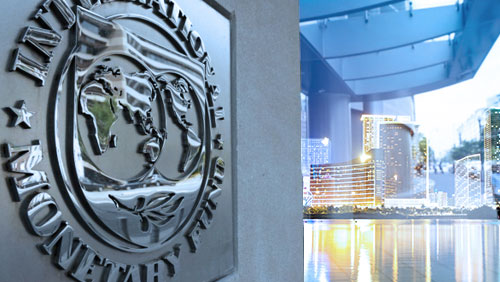Multilateral lender International Monetary Fund (IMF) has backed the move of Macau government to diversify its local economy.
 Geoff Gottlieb, head of the IMF team that visited the former Portuguese colony last week, agrees with the government’s decision to prioritize more mass-market gaming and to focus more on non-gaming tourism products in the city.
Geoff Gottlieb, head of the IMF team that visited the former Portuguese colony last week, agrees with the government’s decision to prioritize more mass-market gaming and to focus more on non-gaming tourism products in the city.
Macau’s overall medium term outlook remains strong despite seeing a contraction in its economy this year, according to the IMF. He added that the city is well positioned for stable and sustainable growth in the low to mid-single digits.
“With respect to growth, the authorities’ five-year plan correctly identifies the importance of diversifying from VIP to mass-market gaming; from gaming to non-gaming tourism; and from tourism to financial services exports,” Gottlieb said in a statement. “Although the economy will contract for a third consecutive year in 2016, external demand has begun to recover with three consecutive months of positive gaming revenue growth.”
In September, the Macau government had set an ambitious target for non-gaming – including hospitality, retailing, food and beverage, and entertainment – to account on average market-wide for at least 9 percent of all such revenue by 2020, from what the government estimates was 6.6 percent in 2014.
Macau’s Five-Year Development Plan does not “aim to expand the size of the gaming industry, but target instead for it to achieve higher intrinsic quality.”
“Developments in mainland China have triggered a large and likely permanent reduction in external demand from high-net-worth visitors,” Gottlieb said. “In response, the [Macau] authorities have embraced the opportunity to move toward an economic model with less volatile and more sustainable sources of income.”
The international financial lender, on the other hand, stresses the need for Macau to address its public sector infrastructure in order to support its bid to attract more tourists in China’s special administrative region.
Policy changes, especially those related to offshore activities such as leasing and wealth management, must also addressed to highlight the city’s competitive advantage. The IMF suggested for Macau government to impose tax rate cuts for non-resident investors and professionals.
“With respect to tourism, the single biggest priority is ensuring that public sector infrastructure investment is adequate in both quality and quantity to accommodate further increases in external demand: the move from VIP to mass market tourists inevitably requires additional capacity to achieve the same amount of growth,” the officer said. “To increase the likelihood that such costs are merited, the authorities should seek to maximize spill-over benefits to local employment with well targeted government training programs and educational investment.”